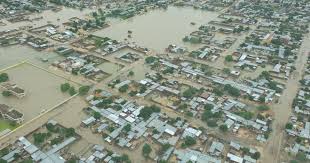
The Chadian Red Cross (CRT), in collaboration with the French Red Cross (CRF) and the French Development Agency (AFD), launched a major initiative on September 30, 2025, to bolster flood risk management and enhance the climate resilience of N’Djamena’s local institutions and residents.
The project, inaugurated at the central town hall of N’Djamena under the patronage of Mayor Senoussi Hassana Abdoulaye, includes the delivery of essential equipment to the municipality.
Volunteers received rolling stock, protective gear, flood mitigation tools, and communication devices, designed to strengthen preventive measures and safeguard vulnerable communities during flood events.
AFD Director Rémy Rioux emphasized the critical nature of the project, noting that flooding poses a significant threat to infrastructure, public health, and the livelihoods of families in the capital.
“France’s objective is to support and professionalize these efforts by strengthening the teams’ operational capabilities to better prevent, anticipate, and manage crises,” he said, highlighting the need for proactive and coordinated action.
Mayor Abdoulaye underlined the importance of rigorous and responsible use of the equipment, stressing that volunteers across the city’s ten municipalities must apply their training effectively to protect citizens.
“Through this partnership, we see international solidarity and the strength of cooperation, which helps unite communities and protect our fellow citizens,” he said.
The initiative is part of a broader effort to enhance N’Djamena’s capacity to respond to climate-related hazards, combining international expertise with local knowledge.
By equipping volunteers with modern tools and training, the project aims to reduce the impacts of seasonal flooding, improve emergency response, and build long-term resilience for the city’s population.
As extreme weather events continue to pose growing challenges across Chad, the collaboration between the CRT, CRF, and AFD represents a significant step towards safeguarding lives, protecting infrastructure, and fostering a culture of preparedness and community resilience.



